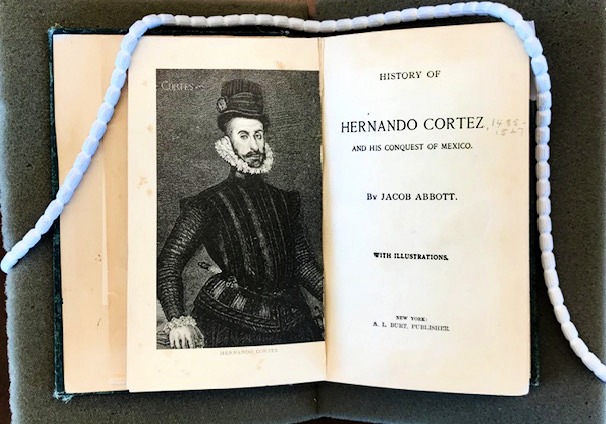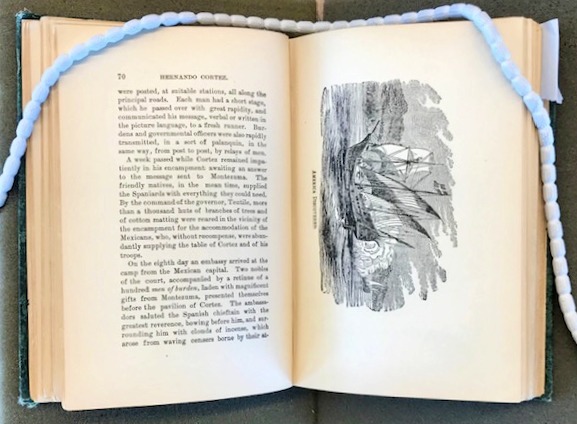The Conquest Narrative
American born author Jacob Abbott, along with his brother John S.C. Abbott, published a voluminous collection of historical biographies, popular historical events, and Christian morals during the middle 19th century. History of Hernando Cortez and the Conquest of Mexico is a biography of the famous Spanish explorer and conquistador, Hernán Cortés (1485 – December 2, 1547), takes a favorable view on Cortés’ life and role in the fall of Aztec populations inhabiting what is Mexico today. Cortés, who is pictured on the cover page, was among the first Spanish to venture to the New World. Born and raised in Castile, Spain, Cortés traveled to Hispaniola (New Spain) in 1504 as a teenager. Over the next fifteen years, Cortés made a name for himself and became the right-hand man to the Governor of the Indies (now Cuba), Diego Velázquez de Cuéllar. Against the orders of Velázquez, Cortés helmed a 500-man expedition to the mainland of Mexico in 1519 on which he spent two years surveying unchartered mainland of the Mayan peninsula and strategically allying with the indigenous peoples only to seize their capital in the name of the Spanish Crown.
This illustrated chapter book was produced for younger audiences as the writing drifts between fact and fiction. A quote from the second chapter titled, Early Life of Cortez, reads, "His courage and imperturbable self-possession made him an invaluable cooperator in ever enterprise of danger." Abbott mostly writes a more aggrandized narrative surrounding a fearless and adventurous explorer than a sourced and authenticated account of the history of the conquest of Mexico. The second image is an example of an illustration portraying the conquest’s fleet of ships arriving in the Americas.
This item is an example of how American literature about historical colonial encounters in Latin America could walk the line between truth and fiction with ease. It is agreed that the conquest of Mexico is not a well-documented event. However, for an early print source originating from an outsider’s gaze of Latin America, this item provides an overall agreeable version of history with other historians. To the point of walking the line of fiction, this text also functions to advance ideas of American national identity in a direction that is more concerned about the events of colonial encounters than the post-colonial outcomes. The implication of this is that the discussion of a colonial encounter is centered around the story of what happened but comes to yield when discussing the implications of the ideological motives and values which were at work. such that American identity could better align themselves with progressing popular interest in world history.
--Joel Varner
Bibliography
Castillo, Susan P., and Ivy Schweitzer. A Companion to the Literatures of Colonial America. Malden, MA: Blackwell Pub., 2005.
Castillo, Susan P. Colonial Encounters in New World Writing, 1500-1786: Performing America. London: Routledge, 2006.

